I arrived in India, from Chiang Mai, towards the end of February for what was supposed to be a month-long holiday.
The airline postponed my return ticket, rerouting the flight through different cities and changing my booking to March 22nd – the day India closed its airspace and entered what was supposed to have been a nation-wide one-day curfew.
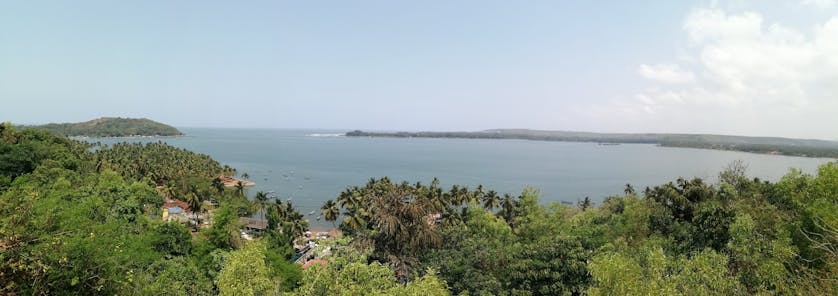
I came to know about the air ban the night before my supposed departure. Unable to extend my booking at the hotel I spent the morning before the curfew fruitlessly looking for a room. Serendipitously, a friend from France called for a chat and, upon hearing of my predicament, offered me her house in Goa. It took time to organise keys and taxi driver but I arrived at the house just after dark. The plan was to drop off the bags and go out shopping, but after the taxi had left, I found that my bike had a flat tire.
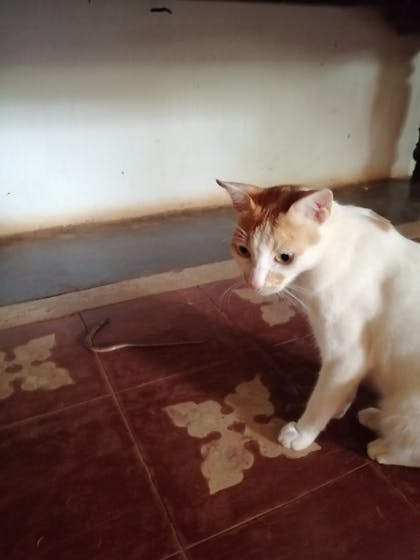
The house sits on the fringes of a quiet Indo-Portuguese suburb entirely void of shops. Nobody walked the streets, and I couldn’t ask for help. Luckily, I had brought whatever food was left in my old room: one pineapple, four small bananas, two tomatoes, plus some coffee and stevia powder. I skipped dinner, and ate the fruits the next day over breakfast and lunch.
In the evening the ministry of Goa extended the one-day curfew by three days, giving us until 11:30am the next morning to stock up on food. The owner of my bike promised to come early next morning to fix it. I went one more night without dinner.
The bike owner arrived late, and worse, he didn’t have a spare tire, claiming all the mechanics were closed. I grabbed his bike to do some shopping, but everything was either closed or empty. On the way back I came across a road block, manned by policemen beating long wooden sticks on the ground while yelling, “You go home!” I returned feeling furious with the bike owner, who was rushing to go home and didn’t seem to care about me not having any food.
I spent the afternoon in a delirium, my phone getting so hot I thought it might explode. There were so many people in my predicament that I joined at least a dozen Facebook and WhatsApp groups set up with the specific aim of finding food. It wasn’t only tourists who had been caught unprepared, but also expats, rich Indians, poor migrant workers, the elderly, the sick. Reading all the messages was exhausting. Impromptu neighbourhood organisations started coordinating food distributions and I got onto the list of a group scheduled to come to my village the next day.

I also found the mobile number of the Governor of Goa, and messaged him around three in the morning. He replied with a promise to put me in the list of the needy, and gave me the number of two social helpers, who replied the next day with promises of food deliveries. Since one of the three confirmed cases in Goa lived in my village, the fierce roadblocks set up around them stopped both deliveries from reaching me.
In the meantime, my French friend lent me the bike they had parked nearby. It didn’t have petrol, and I made a mess trying to syphon it from my other bike using a piece of the garden hose. When the second delivery failed, I braved the curfew.
It was dark and pretty scary, the streets haunted by people in obvious search of food. Everything was closed, except for a small crowd surrounding an old woman selling mangoes. I edged my way in, and she asked me for 1,000 Rps for six mangoes, when the price on Saturday was 500 for twelve. I tried to bargain, “But Didi…” sister, but she lunged forward to swipe away my reaching hand, screaming Hindi insults which included the word ‘motherfucker.’ A man pushed me away saying, “You go, go,” and I came home empty handed, very afraid, and lost, as if suddenly inhabiting a world I didn’t know.
My friends in Chiang Mai started hearing about my troubles, and opened a WhatsApp group in my support. Their care kept me sane. I phoned the Italian consulate in Mumbai, and spoke to a very kind lady who could do nothing to help me. There were thousands of Italians stuck in India, and some of their stories sounded worse than mine. She claimed to know the name of each of us.
By now, a few days in, the hunger was a consistent pain that I tried to contain by drinking water, hot and cold, sometimes with coffee or stevia or both.
The next morning I left the house before dawn with the intention of searching for food in every village of north Goa. I passed through countless roadblocks, manned by policemen who seemed to understand my troubles and sometimes gave me a useless lead to follow. All to no avail, because the only open shops I found were empty. On the way back, a police car blocked my path. From it descended three angry officers armed with long metal sticks, shouting that I must go back to my room. They were turning me backward, while my room was 500 metres ahead. I tried to reason, but a female officer beat me twice with her stick. I arrived home shaking, in tears, and with two blue marks on my leg. I sent a formal complaint to my embassy, including pictures of the bruises.
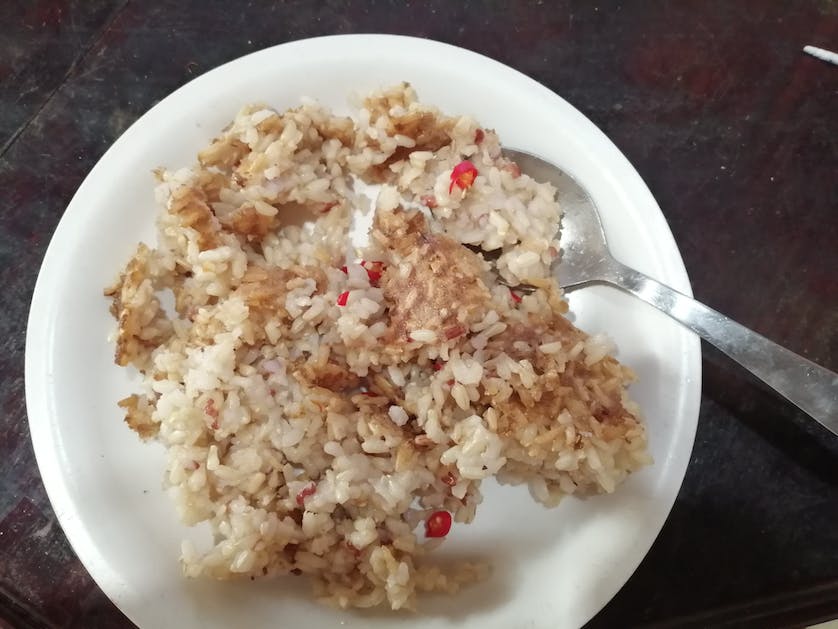
Everything in the house was either locked up or wrapped in plastic, now covered with dust. Rummaging through the kitchen I found some rice scraps and seven old chilies, but no salt or oil. I boiled the rice with a chili, getting it wrong and turning it to mush. As I was trying to eat it, I received a video call from my dear friend Pim Kemasingki, editor of Citylife in Chiang Mai. I showed her my few rice grains, and broke down while telling her all about my situation. She became incensed, as she does so beautifully, and her words calmed me down. By evening I started receiving supporting messages from her many friends in India, who unfortunately lived too far away to actually help.
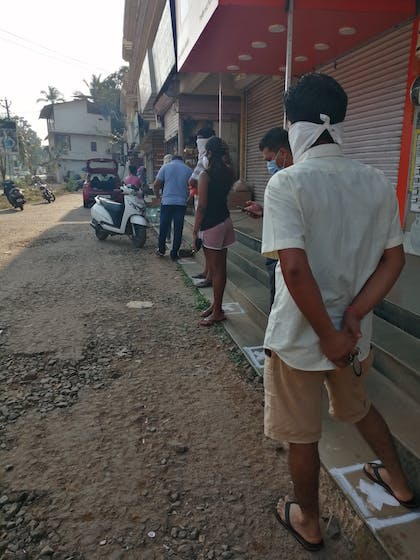
Next, the Goa minister announced a week long extension of the three-day total lockdown, which had been about to end. We couldn’t go out shopping; instead, we could order basics like rice, salt, lentils and sugar from a state-sponsored WhatsApp group which never actually worked. When the consular office phoned me, I cried.
By this stage, I had been so active and nervous that I could actually feel my body extracting the necessary kilojoules by eating itself up. I got dangerously dizzy when standing up or raising my voice, and the pain in my stomach was now persistent. Thankfully, there was a water purification system in the house, and I could drink as much as I wanted, diluting coffee and stevia to give myself some strength.
By the next morning the hunger pains were gone, but I felt generally weaker and my mind foggier. All I had left was two tomatoes, very little coffee, and the stevia. It was scary to think that in a few days I would be too weak to look for food.
I spent the day frantically following leads given in the social media, avoiding calls because I was too tired to speak. Then Pim messaged the name of an Italian man her Indian friend had met years before, who now lives in my very village. I phoned him and he promised to bring me some rice, chickpeas, oil and some salt. He tried to come around nine o’clock, but was stopped by the police, so he came again after midnight. I put the chickpeas in water and cooked them the next day. They had never tasted so good.
It was surreal, receiving a food parcel from my friend in Chiang Mai. It kept me going for the next few days, until a more organised form of lockdown was launched, and I managed to source more food.
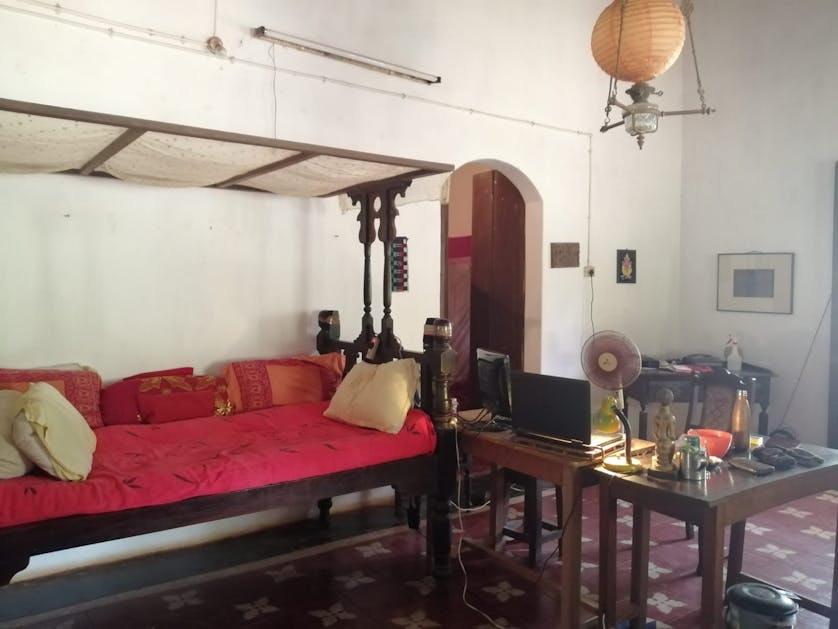
I have been stuck in Goa ever since. I could have boarded a plane to Italy, but India’s cases are still low, and I may stand a better chance to return to Thailand from here. Thai repatriation flights do not accept expats on retirement or marriage visas, and there are many of us stranded around the world. We found each other through Facebook groups, and are now drafting a petition respectfully asking the Thai government to let us back into the country. Sometimes we are hopeful, sometimes we despair. None of us is having an easy time.

If you are from Chiang Mai and have found yourself stuck somewhere in the world and wish to share your story with Citylife, please do so by emailing pim@chiangmaicitylife.com.

